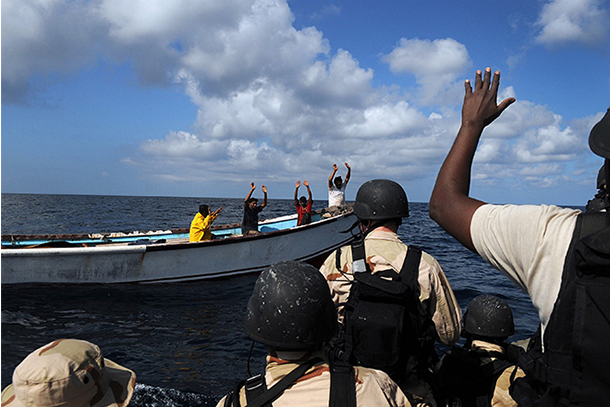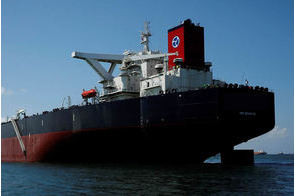Outlook of maritime security in west and central Africa 2021

Summary
The implementation of these initiatives will bolster the safety and security of ships in the Gulf of Guinea.
The COVID-19 pandemic has presented major challenges in the maritime sector and virtually all other economic sectors. Besides the impact on cross-border trade, efforts in coordinating the safety and security of ships have been affected, especially in the Gulf of Guinea where kid-napping and maritime piracy are prevalent. As the pandemic is still raging, this article highlights two initiatives that, if implemented effectively, will significantly bolster the safety and security of the shipping industry in Nigeria and the West and Central Africa (WCA) region in 2021 and beyond.
According to Dryad Global, a London-based maritime security risk management firm, the Gulf of Guinea is one of the world's most important shipping routes for both oil exports from the Niger Delta and consumer goods to and from West and Central Africa. The Nigerian navy, which is the most powerful security force in the gulf, is quite underfunded to adequately tackle the challenges.
The security challenges in the gulf led the International Maritime Organisation (IMO) to establish the Yaoundé Code of Conduct (YCOC) in June 2013 to tackle the diverse range of issues, including illegal, unreported, and unregulated (IUU) fishing, narcotics trafficking, climate resiliency, and maritime terrorism.
The YCOC is the main maritime security framework in WCA. It provides a structure for joint operations, intelligence sharing and harmonised legal frameworks. The code includes the Interregional Coordination Centre (ICC) set up in Yaoundé, Cameroon in 2017 to coordinate over 6,000 kilometres of coastline and 12 major ports.
The ICC has two regional information centres. They are the Regional Maritime Security Centre for Central Africa (CRES-MAC) and the Regional Maritime Security Centre for West Africa (CRESMAO). Stationed in Pointe-Noire, Republic of the Congo, the former serves countries in the Economic Community of Central African States (ECCA). The latter, based in Abidjan, Côte d’Ivoire, serves Economic Community of West African States (ECOWAS) countries.
CRESMAC is fully established with an office, while CRESMAO has not moved into its permanent headquarters. Meanwhile, staffing of the two information centres by some member countries is still pending due to funding challenges. COVID-19 has further constrained funding for the ICC, thereby hampering the effectiveness of the Yaoundé code of conduct.
Last year, the IMO launched a new video conferencing system for the Yaoundé-based inter-regional coordination centre to maintain connectivity among the regional information centres during the pandemic. The new system, fully installed since December 18, is enabling member countries to work remotely and continue their activities via web-based interactive video.
Through this move, the constraints of lack of staffing and the need for a permanent location for CRESMAO have been largely addressed. Communication infrastructure between ICC and the navies of regional member states has also been strengthened. The IMO has also begun a process of facilitating independent funding for the ICC to enable it to autonomously function and minimise the centre’s constraints.
The second initiative, which is localised to Nigeria, is the International Cargo Tracking Note (ICTN) system that was approved for reintroduction in mid-2020 by the federal government. The introduction of the system in Nigeria has been in fits and starts over the last decade.
Nigeria had in 2019 reintroduced ICTN with the Nigerian Ports Authority (NPA) as the regulatory and implementing agency. Maritime stakeholders at the time rejected the initiative and it was subsequently suspended by the government. In 2015, the mandate was given to the Nigerian Shippers’ Council (NSC), the economic regulator of Nigerian ports, to reintroduce the system. Once again, the ICTN was suspended due to backlashes and a series of technical challenges associated with its implementation.
Opposition to the system was mainly on the grounds that it would increase the cost of doing business. Some stakeholders contested the authority of the NSC in handling the mandate. But the council has validated its authority based on Section 3(1) of the NSC (Port Economic Regulator) Order, 2015 and Section 3(b) of the NSC Regulations.
Over the years, the NSC has been consulting with stakeholders in the maritime sector and other government agencies to ensure a hitch-free reintroduction of the system whose aim is to provide safety and security of cargoes and reduce fraudulent practices in the shipping industry. The regulator has also stated that the new ICTN will have negligible cost to shippers.
The ICTN, also known as Advance Cargo Declaration System (ACD), has been in operation in over 20 African countries as well as in the European Union, Asia, the Middle East and the United States. It allows authorities to track, manage, and supervise all cargos from loading to discharge. It also contains information about the exporter and importer, the value of the goods being transported, the cost of the freight, the type of shipment, and so on.
Following the government’s approval for the ICTN reintroduction, Executive Secretary/CEO of NSC, Hassan Bello, said the system will be a game-changer. He also projected a 90 per cent digitisation of port operations by the first quarter of 2021. He said about 68 per cent of ports operations were done electronically by the middle of last year. According to him, it is imperative to improve efficiency at the ports.
The reintroduction of the ICTN will drastically reduce incidents of cargos being lost at sea. It will also enable authorities to provide accurate information on the locations of containers and shipments when requested. If managed effectively, the maritime industry should expect the ICTN to bring about a positive change in the way business is carried out at the Nigerian ports and improve trade facilitation in the country.
Joy Dimka is a Legal Officer at the Nigerian Shippers' Council.
Related
-
Water discharged from ships’ scrubbers contaminating marine environment
The use of heavy fuel oil as a ship fuel contradicts the commitments of the IMO on reducing greenhouse gas emissions.
-
Towards a safe marine ecosystem and blue economy
Robert Swan, OBE: “The greatest danger to our planet is the belief that someone else will save it.”






